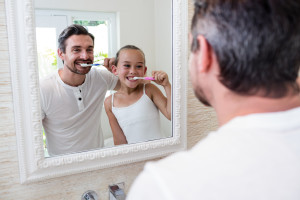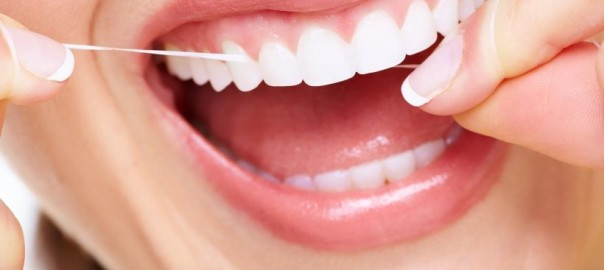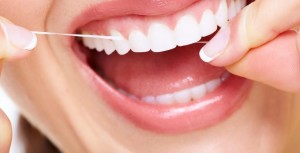
It’s impossible to predict when an accident can happen. Sometimes, dental emergencies come when you least expect them. If you are struck with an injury or accident in the middle of the night, and you aren’t able to get to your dentist right away, there are special steps you can take to provide immediate care for yourself and prevent any permanent damages from occurring.
At Samaritan Dental Arts, we are available 24 hours a day, 7 days a week to be your go-to dentist in downtown Los Angeles in the event of an emergency. If you ever run into an accident which causes a broken tooth or bleeding gums, we want to make sure you can get the proper care that you need. Before stopping in for an emergency visit, here are a couple of crucial steps you should take on your own before any big problems arise.
For Chipped or Broken Teeth
If your tooth is chipped or broken, try as best as you can to save the pieces of the tooth that have fallen out. Then, you should rinse your mouth out using warm water, but not too hot. Put some medical gauze in your mouth to stop any bleeding that may have occurred as a result of the accident.
You may experience some swelling and pain. In order to ease the swelling, put a cold compress to the outside of your cheek or mouth near the damaged area. Then, make an appointment to see us as soon as possible.
For a Knocked-Out Tooth
If your tooth has been knocked out completely, it is vital that you retrieve the tooth as best as you can. Make sure to hold it by the crown, rather than the root – this area is too sensitive and susceptible to damage. If the tooth is dirty, gently rinse it in warm water. Make sure not to scrub it or use soap.
Try to put your tooth back into your mouth in its original position. If you feel like you have to force it into your socket, do not attempt to put the tooth in. The best thing for you to do in this case is to put the tooth in a container of milk to preserve it. If you have a cell-growth solution such as Save-a-Tooth, you can put it into that solution as well. Then, make an appointment to see us as soon as you can, so that we may save your tooth and apply it back into its correct position.
Abscess or Infections
Some injuries, especially those that cause the gums or lips to bleed, may become the host for infection. If you have an abscess, which is noticeable by infections around the roots and gums, you must make an appointment to see us right away. Infection is a serious issue that can quickly and easily spread to the rest of the mouth. An abscess should not be left untreated in any scenario.
If you suffer from an accident that causes your lips, gums, or mouth to bleed, or if you have a dislodged or broken tooth, you must consult a professional as soon as possible.
Dentist in Downtown Los Angeles
At Samaritan Dental, we are dedicated to providing affordable and top-quality care to all patients. Our friendly staff members are here to help with every need, and we are always available to answer any concerns you may have. If you need help with a dental emergency, or if you are interested in making an evening appointment with the top dentist in downtown Los Angeles, you can contact us online for more information. You can also give us a call at (213) 986-2933 to schedule an appointment at any time!



















 Yelp
Yelp I have never had a better dental experience prior to my visit with Dr. Zabolian. It was pain free for the first time ever, the staff was friendly, accommodating to my schedule, there were no problems with my insurance claims... I am so happy I have found a dentist (after all these years) I feel so comfortable going to and also taking my family.
I have never had a better dental experience prior to my visit with Dr. Zabolian. It was pain free for the first time ever, the staff was friendly, accommodating to my schedule, there were no problems with my insurance claims... I am so happy I have found a dentist (after all these years) I feel so comfortable going to and also taking my family. 






